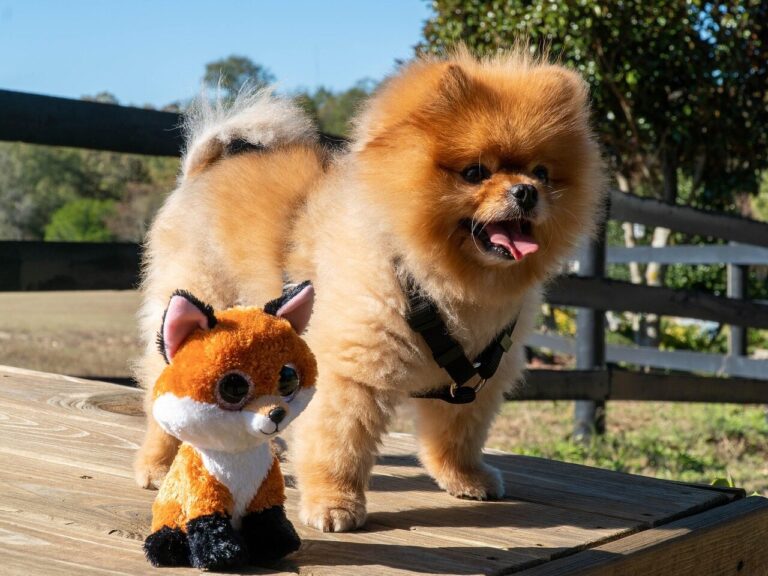20 Ways To Keep Your Old Dog Happy And Healthy

Getting old isn’t easy—ask dogs. Those sweet, graying faces deserve extra kindness, and luckily, small changes go a long way. With the right knowledge, you can make a difference. These 20 tips will help them live their golden years with comfort, dignity, and tail-wagging joy.
Give Them Extra Sniff Time

Let walks turn into sniff-fests. Dogs use their noses to engage with the world, and for seniors with reduced vision or hearing, that nose becomes even more important. Smelling is a mental exercise. Slowing the pace and letting them investigate every blade of grass is an act of love.
Reconsider The Furniture Setup

Senior pooches don’t adapt well to change, especially if their eyesight or joints are failing. Moving a chair may seem harmless, but to them, it’s like rearranging their world. Keep paths clear and avoid reworking familiar layouts. A steady home setup gives them confidence and reduces accidents.
Check For Lumps During Belly Rubs

Not every lump is a red flag, but regular check-ins help catch problems early. Use those lazy cuddle sessions as a chance to feel for new bumps or odd textures. Soft lumps could be lipomas, but you should call the vet for firm ones. Stay alert and proactive.
Stick To A Grooming Routine

Older dogs may stop grooming themselves well. Daily brushing prevents tangles and lets you inspect their skin up close. Pay special attention to their rear end if they’re incontinent. Keep fur trimmed near potty areas, and use this time to check for cuts, fleas, or anything else that seems off.
Keep The Pounds In Check

Senior dogs burn fewer calories but still love their treats. However, obesity in older dogs can worsen joint pain and increase the risk of disease. Use your hands to feel their ribs; if you can’t, it’s time to scale back food or treats and boost light activity.
Let Them Nap In Style

Cold floors and aging joints don’t mix. Orthopedic or heated beds support older bones and help regulate temperature. In winter, their bodies can’t retain heat well, so skip the tile floor and give them something plush and warm to sprawl on. They’ve earned the upgrade.
Adjust The Exercise, Not The Energy

Your pooch may not run like before, but gentle movement still matters. Muscle mass helps protect aging joints. Swap fetch marathons for short, sniffy strolls or backyard wandering. Encourage movement with toys or scent games. It keeps their bodies limber and their spirit lifted without wearing them out.
Watch For The Weight Drop

When an older dog suddenly loses weight, it can be a sign of illness—think diabetes or cancer. A gradual drop might be normal, but anything fast is worth a vet visit. Weigh them monthly if possible, and don’t ignore changes in appetite or how their body looks under the fur
Offer A Helping Paw With Ramps

Jumping on the couch shouldn’t feel like scaling Everest. Ramps and steps give senior pups access to their favorite spots without hurting themselves. Bonus points if the ramp has grip tape or carpet. Pair it with treats and encouragement, and they’ll figure it out in no time.
Set Up A Twice-A-Year Vet Routine

They can’t always show pain or discomfort, so regular vet visits are key. The American Animal Hospital Association recommends checkups every six months. These visits often include bloodwork and screenings that catch problems before they grow into emergencies. Prevention is cheaper and easier than treatment.
Go Easy With The Brush

That thinning coat and sensitive skin need gentle tools. Ditch the wire brushes and grab a soft-bristle one instead. The act of grooming boosts circulation, spreads natural oils, and strengthens your bond. If they’re fidgety or sore, go slow. Turn it into a calming ritual they look forward to.
Create Brain-Teasing Games

Mental stimulation is more important than ever. Hide treats in boxes or play scent-based puzzles. Dogs with cognitive decline benefit from keeping their minds active. Simple, rewarding challenges can stretch their problem-solving abilities. It’s fun for you and even better for them. Bonus: A tired brain equals better sleep.
Keep Their Nails Trimmed

Overgrown nails can mess with balance and hurt like crazy, especially for arthritic dogs. Long nails can force them to walk awkwardly, putting stress on already painful joints. If you hear tapping on the floor, it’s overgrown. Use clippers or a grinder regularly, and check the nails every week.
Make Social Time Count

Canines don’t always outgrow their social side. Arrange gentle playdates or visit familiar parks. But monitor their mood—some seniors enjoy a good romp while others prefer quiet company. Keep the social circle tailored to their energy level. A chill day with an old pal can do wonders.
Be Generous With Affection

Science backs this up—eye contact and touch boost oxytocin, the hormone of love and trust. As your pet ages, emotional support matters more. Talk to them and pet them. Scratch their favorite spot. They still need that closeness, and your time is their favorite medicine
Change Communication Style

If they’re not responding to commands, they might not be ignoring you. Hearing loss sneaks up on older dogs. Clap gently or stomp when you enter a room so you don’t startle them. Switch to hand signals if needed. Adjust your communication without assuming they’ve stopped listening.
Feed For Their Age

Senior dog food isn’t just a marketing gimmick. Older dogs need fewer calories but more high-quality protein. Check with your vet about their specific needs. Some may need supplements, and others may need to switch to wet food for easier chewing. The right food prevents weight gain and gives the nutrients they need.
Don’t Skip Tooth Time

Dental disease causes bad breath and even heart issues. Brush daily with dog-friendly toothpaste; xylitol in human toothpaste is toxic. You can ease them into it with flavored pastes or dental chews approved by the Veterinary Oral Health Council. Don’t wait until they’re drooling blood or skipping meals.
Watch The Backyard Time

Vision and hearing loss make even a fenced yard risky. Keep an eye on them outdoors. If they wander too far or get stuck behind a bush, they might not know how to return. They’re not being weird—it’s just old age. Stay present, or walk the yard with them.
Try Gentle Therapies For Pain

Warm towels, massages, acupuncture—there are more tools for joint pain than just pills. Cold laser therapy and chiropractic work have helped many aging pups find relief. Talk to your vet about what’s safe and effective for your dog. Relief may come from sources you haven’t considered yet.





